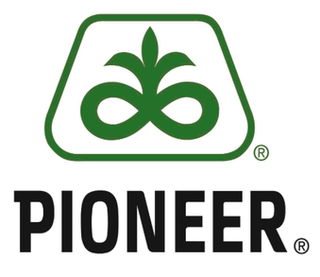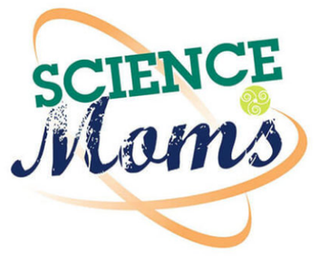
Herbicides, also commonly known as weedkillers, are substances used to control unwanted plants. Selective herbicides control specific weed species, while leaving the desired crop relatively unharmed, while non-selective herbicides can be used to clear waste ground, industrial and construction sites, railways and railway embankments as they kill all plant material with which they come into contact. Apart from selective/non-selective, other important distinctions include persistence, means of uptake, and mechanism of action. Historically, products such as common salt and other metal salts were used as herbicides, however these have gradually fallen out of favor and in some countries a number of these are banned due to their persistence in soil, and toxicity and groundwater contamination concerns. Herbicides have also been used in warfare and conflict.
The Monsanto Company was an American agrochemical and agricultural biotechnology corporation founded in 1901. In 2018, it was acquired by Bayer as part of its crop science division. It was headquartered in Creve Coeur, Missouri. Monsanto developed Roundup, a glyphosate-based herbicide, in the 1970s, and became a major producer of genetically engineered crops.
Roundup is the brand name of a systemic, broad-spectrum glyphosate-based herbicide originally produced by Monsanto, which Bayer acquired in 2018. Glyphosate is the most widely used herbicide in the United States. As of 2009, sales of Roundup herbicides still represented about 10 percent of Monsanto's revenue despite competition from Chinese producers of other glyphosate-based herbicides. The overall Roundup line of products, which includes genetically modified seeds, represented about half of Monsanto's yearly revenue. The product is marketed to consumers by Scotts Miracle-Gro Company.

Pesticide resistance describes the decreased susceptibility of a pest population to a pesticide that was previously effective at controlling the pest. Pest species evolve pesticide resistance via natural selection: the most resistant specimens survive and pass on their acquired heritable changes traits to their offspring.

Glyphosate is a broad-spectrum systemic herbicide and crop desiccant. It is an organophosphorus compound, specifically a phosphonate, which acts by inhibiting the plant enzyme 5-enolpyruvylshikimate-3-phosphate synthase. It is used to kill weeds, especially annual broadleaf weeds and grasses that compete with crops. It was discovered to be an herbicide by Monsanto chemist John E. Franz in 1970. Monsanto brought it to market for agricultural use in 1974 under the trade name Roundup. Monsanto's last commercially relevant United States patent expired in 2000.

Paraquat (trivial name; ), or N,N′-dimethyl-4,4′-bipyridinium dichloride (systematic name), also known as Methyl Viologen, is an organic compound with the chemical formula [(C6H7N)2]Cl2. It is classified as a viologen, a family of redox-active heterocycles of similar structure. Paraquat was manufactured by Chevron. This salt is one of the most widely used herbicides. It is quick-acting and non-selective, killing green plant tissue on contact. It is also toxic to human beings and animals due to its redox activity, which produces superoxide anions. It has been linked to the development of Parkinson's disease and is banned in several countries.

Alachlor is an herbicide from the chloroacetanilide family. It is an odorless, white solid. The greatest use of alachlor is for control of annual grasses and broadleaf weeds in crops. Use of alachlor is illegal in the European Union and no products containing alachlor are currently registered in the United States.

The International Agency for Research on Cancer is an intergovernmental agency forming part of the World Health Organization of the United Nations. Its role is to conduct and coordinate research into the causes of cancer. It also collects and publishes surveillance data regarding the occurrence of cancer worldwide.

Pioneer Hi-Bred International, Inc. is a U.S.-based producer of seeds for agriculture. They are a major producer of genetically modified organisms (GMOs), including genetically modified crops with insect and herbicide resistance.

Dicamba is a broad-spectrum herbicide first registered in 1967. Brand names for formulations of this herbicide include Dianat, Banvel, Diablo, Oracle and Vanquish. This chemical compound is a chlorinated derivative of o-anisic acid.
John E. Franz is an organic chemist who discovered the herbicide glyphosate while working at Monsanto Company in 1970. The chemical became the active ingredient in Roundup, a broad-spectrum, post-emergence herbicide. Franz has earned much acclaim and many rewards for this breakthrough. He also has over 840 patents to his name worldwide.
The Oxnard Elementary School District is located in the city of Oxnard, California. The district serves 16,500+ students, has 21 schools, and has over 700 teachers.

2,4-Dichlorophenoxyacetic acid is an organic compound with the chemical formula C8H6Cl2O3 which is usually referred to by its ISO common name 2,4-D. It is a systemic herbicide which selectively kills most broadleaf weeds by causing uncontrolled growth in them but most grasses such as cereals, lawn turf, and grassland are relatively unaffected.

The Séralini affair was the controversy surrounding the publication, retraction, and republication of a journal article by French molecular biologist Gilles-Éric Séralini. First published by Food and Chemical Toxicology in September 2012, the article presented a two-year feeding study in rats, and reported an increase in tumors among rats fed genetically modified corn and the herbicide RoundUp. Scientists and regulatory agencies subsequently concluded that the study's design was flawed and its findings unsubstantiated. A chief criticism was that each part of the study had too few rats to obtain statistically useful data, particularly because the strain of rat used, Sprague Dawley, develops tumors at a high rate over its lifetime.
The Enlist Weed Control System is an agricultural system that includes seeds for genetically modified crops that are resistant to Enlist and the Enlist herbicide; spraying the herbicide will kill weeds but not the resulting crop. The system was developed by Dow AgroSciences, part of Dow Chemical Company. In October 2014 the system was registered for restricted use in Illinois, Indiana, Iowa, Ohio, South Dakota and Wisconsin by the US Environmental Protection Agency. In 2013, the system was approved by Canada for the same uses.
Monsanto has been involved in several high-profile lawsuits, as both plaintiff and defendant. It has been defendant in a number of lawsuits over health and environmental issues related to its products. Monsanto has also made frequent use of the courts to defend its patents, particularly in the area of agricultural biotechnology.

Stephanie Seneff is a senior research scientist at the Computer Science and Artificial Intelligence Laboratory (CSAIL) of the Massachusetts Institute of Technology (MIT). Working primarily in the Spoken Language Systems group, her research at CSAIL relates to human-computer interaction, and algorithms for language understanding and speech recognition. In 2011, she began publishing controversial papers in low-impact, open access journals on biology and medical topics; the articles have received "heated objections from experts in almost every field she's delved into," according to columnist Ari LeVaux.

Science Moms is a 2017 American documentary film about mothers who advocate for science-based decision-making concerning the health and nutrition of children. The film covers vaccines, autism, celebrity-endorsed health fads, cancer, allergies, organic food, GMOs, homeopathy, and the appeal to nature fallacy.
Glyphosate-based herbicides are usually made of a glyphosate salt that is combined with other ingredients that are needed to stabilize the herbicide formula and allow penetration into plants. The glyphosate-based herbicide Roundup was first developed by Monsanto in the 1970s. It is used most heavily on corn, soy, and cotton crops that have been genetically modified to be resistant to the herbicide. Some products include two active ingredients, such as Enlist Duo which includes 2,4-D as well as glyphosate. As of 2010, more than 750 glyphosate products were on the market. The names of inert ingredients used in glyphosate formulations are usually not listed on the product labels.
Carey Gillam is an American investigative journalist.











